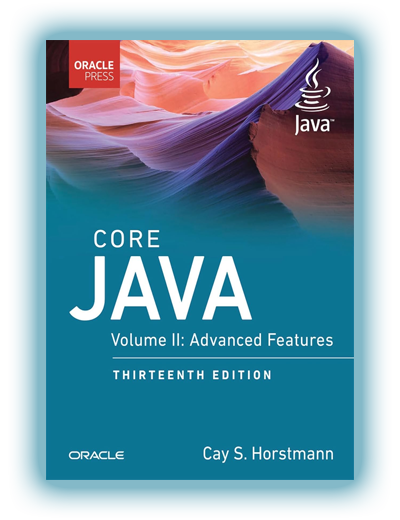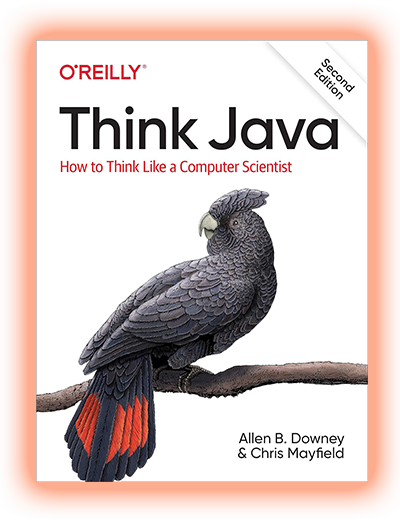Java remains one of the most in-demand programming languages globally, and mastering it is a cornerstone for any serious IT career. The guide "Java Essentials: From Beginner to Developer" by Programming Hub is a well-structured, step-by-step introduction to the language, designed for both students and self-learners.
The authors take a systematic approach: they don’t just cover syntax but explain how the JVM works, what object-oriented programming means in real projects, and why Java is considered a reliable platform. There are no theoretical tangents - every topic is backed by practical examples and tasks relevant to real-world applications.
From basic operators to file handling and exceptions, the guide helps solidify knowledge with clear logic and meaningful code. Its strength lies in its coherent structure and focus on preparing for professional development.
Where to Download "Java Essentials: From Beginner to Developer"?
You can download "Java Essentials: From Beginner to Developer" in PDF from codersguild.net, an open library of high-quality technical literature. All publications are vetted by experts and provided in user-friendly formats for reading on any device.
If you value structured Java material and want access to this guide and other expert-recommended resources, codersguild.net is the ideal choice.
What Are the Key Benefits of This Guide?
The guide’s primary strength is its clear structure and practical focus. Instead of dry theory, you get step-by-step guidance, from installing the JDK to building a complete application.
- The authors present material logically: each chapter builds on the previous one, introducing new topics only after mastering earlier concepts. This avoids the common beginner issue of information overload.
- Significant emphasis is placed on object-oriented programming, covering inheritance, encapsulation, and polymorphism, with real-world examples of their application.
- Practice follows every topic, allowing you to reinforce knowledge through action, not just reading.
- Importantly, the guide addresses common beginner mistakes and offers tips to fix them, making it a true learning resource, not just a reference.
What Will You Learn from "Java Essentials: From Beginner to Developer"?
By studying this guide, you’ll gain comprehensive knowledge and master key Java concepts:
- Fundamentals of syntax and variables
- Conditional statements and loops
- Methods and parameters
- Object-oriented programming
- Exception handling and file operations
How to Apply the Knowledge in Practice?
After reading, you’ll be able to use Java for practical tasks and create your own projects, from simple console programs to elements of business logic. You’ll understand how to:
- Develop basic calculators and data-processing utilities
- Create banking models: accounts, transactions, and users
- Handle text files, logs, CSV, and JSON
- Build simple console games and simulators
- Construct class systems with inheritance and interfaces
The Developer's Opinion About the Book
This is an excellent starting point for those who want to do more than “just code” but understand Java’s inner workings. Its practical focus is invaluable: the authors teach you to think, analyze, and solve problems, not just follow examples. The approach is consistent, with no abrupt topic jumps, which is critical for beginners. OOP is presented at a level sufficient for advancing to more complex courses or Java frameworks. As an educator, I’d recommend this guide as a foundation for university courses or internships. It builds a strong coding culture and teaches you to write programs you’d be proud to show an employer.
Alexander Moore, Java Developer
FAQ for "Java Essentials: From Beginner to Developer"
1. Is the guide relevant for learning Java in 2025?
Yes, it remains relevant as it covers universal language concepts stable since Java 8 and beyond. The focus is on syntax, class structure, OOP, and core APIs - foundations used in most Java projects, regardless of version. It also incorporates modern features like try-with-resources, lambda expressions, and streams, preparing you for advanced frameworks like Spring or Jakarta EE.
2. Is this textbook suitable for someone who’s never programmed?
Yes, it’s ideal for absolute beginners. It explains not only syntax but also algorithmic thinking, data types, logical operators, and program structure. Its clear, step-by-step explanations avoid jargon without context. Examples include reasons for using specific approaches, which is crucial for those without a math or IT background. Practical tasks after each chapter reinforce skills, ensuring you don’t just memorize commands.
3. Does the guide cover OOP with practical examples?
Yes, object-oriented programming is central to the guide. The authors introduce concepts through real scenarios: creating user classes, managing bank accounts, and modeling object behavior. Each OOP principle - encapsulation, inheritance, polymorphism - is explained with concrete code examples. It also covers interfaces and abstract classes, showing how to structure projects, pass behavior through methods, and create scalable architectures. This helps you design code that’s purposeful, not just functional.
4. Does the author use modern programming practices?
Yes. Though aimed at beginners, the guide includes modern standards: using IDEs, code style recommendations, try-catch-finally, basic unit tests, and code comments. It shows how to avoid common pitfalls like null handling, nested conditionals, and code duplication. Examples follow Java Code Conventions, fostering clean, readable code. It also covers project structure and package organization, key for transitioning to larger projects and understanding Clean Code principles.
5. Is the guide suitable for preparing for internships or interviews?
Yes, especially for entry-level roles. It covers all topics typically found in technical interviews: syntax, loops, arrays, methods, string handling, and OOP. After reading, you’ll have a clear understanding of fundamentals and confidence in practical tasks. The guide also teaches how to structure solutions: breaking them into steps, creating functions, and writing readable code - critical for coding tests and assignments.
Information
| Author: | Programming Hub | Language: | English |
| Publisher: | Programming Hub, Inc | ISBN-13: | - |
| Publication Date: | 2024 | ISBN-10: | - |
| Print Length: | 130 pages | Category: | Java Books |
Get PDF version of "Java Essentials: From Beginner to Developer" by Programming Hub
Support the project!
At CodersGuild, we believe everyone deserves free access to quality programming books. Your support helps us keep this resource online add new titles.
If our site helped you — consider buying us a coffee. It means more than you think. 🙌

You can read "Java Essentials: From Beginner to Developer" online right now!
Read book online* →*The book is taken from free sources and is presented for informational purposes only. The contents of the book are the intellectual property of the author and express his views. After reading, we insist on purchasing the official publication on Amazon!
If posting this book in PDF for review violates your rules, please write to us by email admin@codersguild.net




